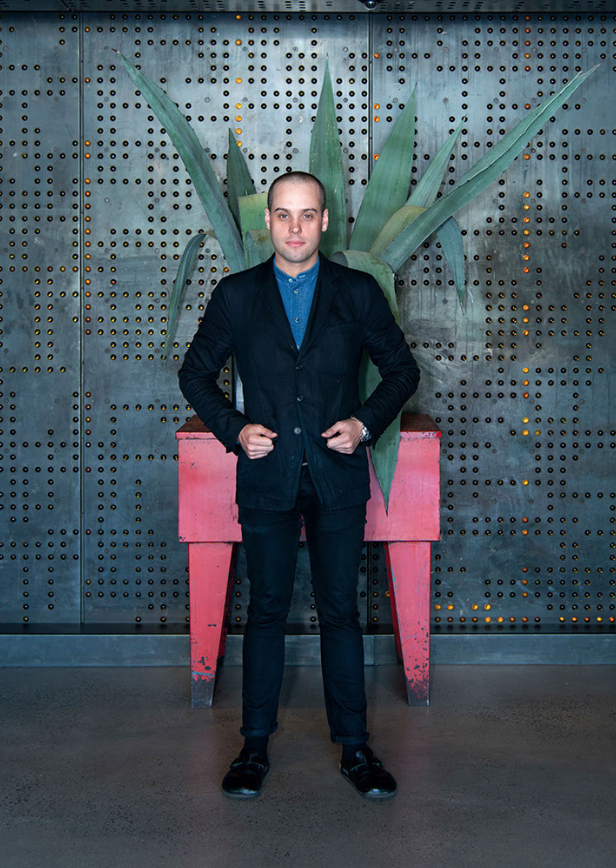Standards

Our interactions with guests and visitors should always be natural and real. We value initiative, small gestures of generosity and kindness. We believe in working together for the common good. At Hotel Hotel we pull up our socks, but not so much that our individuality is lost.
Hotel Hotel is not conventionally designed. The public lounge is a series of nested spaces that flow from one to the other. Monster kitchen and bar is completely unsegregated, sitting at the heart of the ground floor. Similarly the reception desk can feel like part of the Monster. We seek to provide a consistent experience as visitors wander throughout these spaces and due to the design extra care is needed.
Our service culture is guided by a set of four hospitality concepts.
|
Concept
|
Framework for delivery |
|
Welcome people like you would to your own home |
First impressions are lasting
1. The entry, airlock and grand stair is always immaculate. Flowers perfect, no dust, rubbish, or debris of any kind, streak-free glass, no clutter on desks, no mail on view or in the way, ordered library and all back-of-house doors are shut.
2. All staff (regardless of role) acknowledge people entering the hotel from the airlock or up the grand stair immediately on entry with eye contact and a welcoming smile. Visitors walk through Hotel Hotel for many reasons: to sticky beak; for a meal or drink; to get to the other side; to visit the cinema. There are many points of encounter and greetings require discretion. It is important to always have your eyes up looking for cues and triggers that may pre-empt someone’s needs. Gather information in a warm and welcoming way – “Hello, what brings you here today, how can I help?”
|
|
Welcoming, warm greeting
1. Guests are greeted verbally when within 2 metres of the reception desk. Our greetings are never scripted and should always be delivered with inclination and sincerity. A salutation may be topical or customised to a situation. We are engaging and smart – never passive.
2. The language of our limbs never lies. Be mindful of your body language – a strong stance, shoulders back, maintaining eye contact, open posture and reassuring gestures such as extending the arm and nodding. Smile. Be mindful of the expression on your face. With hard work, comes the face of concentration (angry face). Soften it.
|
|
|
Nothing is too much trouble and it’s never a bad time
1. See to guest needs first, finish tasks second. Prioritise. The guest in front of you is most important. Be open and honest if juggling priorities – communicate these in a warm and professional way.
2. Special requirements delivered with pleasure.
3. Exceed expectations and offer small gestures of generosity.
|
|
|
Be house proud
1. Take ownership and follow tasks to their conclusion.
2. Attention-to-detail; attend to mess, uncleanliness, disorder, even if you didn’t make it.
3. Be knowledgeable of the furniture, objects and art. Be willing to share anecdotes about the various elements of the hotel and the people who made them.
|
|
|
For the love |
Helping others shouldn’t be a drag, but a joy
1. The most satisfaction in life and work is gained from helping others.
|
| Inspire others
1. Help cultivate a happy, positive environment, lead by example.
|
|
|
Hotel Hotel is filled with our family and friends. |
Be real
1. Be yourself (your best self). Don’t hide your character. Wear your heart on your sleeve. Show your feelings. Be open and sincere. Don’t be afraid to apologise.
|
|
Be friendly
1. Where appropriate introduce yourself by name. Make the effort to remember guest’s names and use them when talking with them. Introduce guests by name to colleagues.
2. Strike up a conversation with an ambling guest – avoid trite exchanges.
3. Read the body language of others. Look for cues like looking at a watch or phone. These usually mean a guest has disengaged and is in a hurry. Expedite your interaction.
|
|
| “There are no passengers on spaceship earth. We are all crew” — Marshall McLuhan
|
Hotel Hotel operates a participatory service model where the simple, day-to-day responsibilities are shared. Sharing responsibilities is better. It lessens the load on you. It lessens the load on your colleagues.
The three metre rule
1. Anything unfolding or wonky within a three-metre radius to you is your responsibility, regardless of your assigned role. You are the custodian of your three metres. It’s up to you to put it right. · smile and acknowledge a guest, introduce yourself, have a chat · smile and acknowledge a colleague, a delivery person, a cleaner · help a guest with their luggage · pick up rubbish (don’t be afraid of the dustpan or broom) · answer the phone · straighten the library · straighten the rug or chair · report something damaged · help a colleague with a box · clear glasses, wipe a table · clean up and put on the dishwasher in the staff room · pick up a room service tray
|